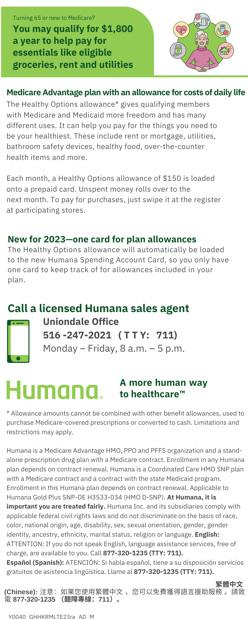
1 minute read
Debunking Myths
Clinical trials are an opportunity for you or your loved ones to help others experiencing dementia as well as potentially receive a treatment or therapeutic.
Myths vs. Facts
There is no need for more participants. Many studies are looking for more participants to help find new treatments for Alzheimer’s Disease.
Clinical trials are dangerous.
Clinical trials are experimental, which means they come with some risk. Clinical trials are highly regulated by the government, ethics boards, and safety committees to ensure the safety of participants. Specific risks and adverse events will be outlined in the informed consent, and you should ask your doctor about these risks.
If me or my loved one joins a clinical trial, they may receive a placebo.
In a randomized clinical trial, it is possible you or your loved one may receive a placebo, or a pill with no therapeutic value. You should evaluate you and your loved one’s comfort level of participating in a trial where they may receive a placebo.
It costs too much to participate in a clinical trial.
Clinical trials often provide reimbursements for travel, hotels, and meals. Participants also receive trial-related care and the investigational treatment at no cost during a clinical trial.
If there is a suitable clinical trial available, my doctor will tell me.
If You Need Support
With hundreds of clinical trials available, your doctor may be unaware of all of them. Visit clinicaltrials.gov to see available trials and bring them to your doctor.
For immediate support, call the Alzheimer's Foundation of America National Toll-Free Helpline at 866-232-8484
To join a caregiver support group, visit at alzfdn.org
Please scan the QR code or visit










